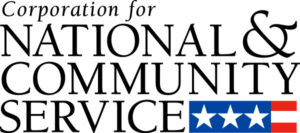 In the winter of 1996, I started a new job, directing The Virtual Volunteering Project. I was based in Austin, Texas, and I flew to Washington, DC to meet one of the advisors of the project, Susan J. Ellis.
In the winter of 1996, I started a new job, directing The Virtual Volunteering Project. I was based in Austin, Texas, and I flew to Washington, DC to meet one of the advisors of the project, Susan J. Ellis.
She terrified me.
She seemed to know absolutely everything there is to know about volunteerism. She had thought about virtual volunteering far, far more than I ever had. She was absolutely sure of the impact online volunteers could have on the world and had already envisioned specific examples of possibilities. She wasn’t surprised at all by anything I told her regarding what I knew about working with online volunteers or what I knew about organizations engaged in virtual volunteering. She was five steps ahead of me no matter what I was saying or thinking. It was one of the most intimidating meetings I’ve ever had.
I have remained in awe of Susan’s expertise and ways of thinking and strategizing every day since that meeting, but I also am so happy that, since then, Susan became a frequent collaborator and good friend. Back in those early days, we would do workshops together at various volunteer management and volunteerism conferences and ask the room, “How many of you have an email address?” Maybe a quarter of the room would raise their hands. I wanted to be tentative and gentle about introducing virtual volunteering – she didn’t, and would challenge the room with statements about how they had better get ahead of this because, if they didn’t, tech-savvy volunteers would create their own efforts and leave them behind. Over the four years I directed the Virtual Volunteering Project, I became far bolder in my statements and advice as well, and it was because of her. She never officially consulted on the United Nation’s Online Volunteering Service when I directed the project at UNV, but so much of what I did in managing that service was because of what she taught me, and any success regarding that service is, in part, because of her.
Her book From the Top Down: The Executive Role in Successful Volunteer Involvement changed everything I had been thinking about volunteerism, and I still refer to it regularly when trying to create a presentation or a research paper or write a blog post. When she told me she had suggested the authors writing the book What We Learned (the Hard Way) about Supervising Volunteers to contact me for a contribution, I was floored – what did I know?!? She had so much more faith in me than I ever did in myself. I read her oh-so-provocative Hot Topics, her monthly blog series, and was inspired for months to come with new questions and comments for colleagues – and always checked it whenever I had what I thought was a new idea because, very often, Susan had the same questions or comments months or even years before me.
The first time I visited the Energize, Inc. office in Philadelphia in 1998, we were both active participants on CyberVPM, a then very popular and pioneering online group to discuss volunteer management. Sitting in her office, we decided to author a joint post and propose a discussion that the President Bill Clinton intern/sex scandal was, in fact, a volunteer management issue, since the intern was unpaid and, therefore, a volunteer. Many on the group balked at the idea of discussing “politics”, but Susan didn’t back down: she asked point blank how these organizations would handle the same situation in their own organizations, what policies they had in place to address it, etc.
Susan was disruptive long before it became fashionable to be such.
Let’s be clear: there is no person on Earth who has done as much to promote volunteerism and the best practices for engaging and support volunteers than Susan J. Ellis. Her contributions cannot be overstated. That any academic paper regarding any aspect of volunteerim can be written without quoting Susan at some point is beyond me. I have not done a presentation on volunteer engagement in the last 22 years that I did not reference Susan Ellis.
Susan wasn’t just a pioneer regarding the identification and promotion of volunteer management best practices and innovations, she wasn’t just a guru regarding all things volunteerism: Susan J. Ellis was a pioneer geek fan girl. Her company, Energize, Inc., was named for the term “energize” in Star Trek, and she had fantastic stories about being a Trekker in the earliest days of the show. She also was a huge fan of David McCallum and The Man From U.N.C.L.E. and a few years ago, over a huge sandwich at a Schlesinger’s, a legendary traditional Jewish deli in Philadelphia, she told me a wonderful story of waiting outside a stage door as a starry-eyed young fan girl so she could show McCallum, who was appearing in a stage production, the scrapbook she’d put together for years watching his show. She did, indeed, meet him and show him her work, and he had seemed quite impressed. Many years later, she decided to wait outside another stage door for him in a different show, just to get another autograph, and he said upon seeing her, “You’re the girl with the scrapbook.” She beamed at that story, as any fangirl does, to be remembered by someone whose career you have followed and promoted with such passion.
Susan also wrote a Master’s thesis on the history of scrapple, a traditional and not-at-all kosher food of Pennsylvania, and I not only read it when I last stayed at her house, I also delighted in playing for her the scrapple song by one of my favorite performers, Robbie Fulks. I had intended to get him to autograph something for her in March when i see him perform, to honor her scrapple research.
In 2005, Susan and I were at yet another volunteerism conference together – I had been living in Germany for four years. And we sat at a table and had a conversation in German. She was so delighted to hear me stumble through the language of her parents and to be able to have a bit of back and forth in it. It’s one of MANY moments I cherish with her.
The blanket on my couch is the one Susan gave me as a wedding present. One of my favorite outfits is one I bought when I met up with her in London to tell her I had started a completely revising our book on virtual volunteering. And, of course, so many of the books she wrote and published are on my bookshelves.
You have probably noticed by now that I’m talking about Susan in the past tense. Susan passed away yesterday morning, Sunday, February 25. I wanted to wait a day before posting my tribute online because I wanted to make sure that those who were closest to her would know this news by now and wouldn’t learn it by reading this blog or any social media posts I made.
Seven years ago, Susan was diagnosed with cancer. She made a remarkable recovery from that initial diagnosis and the toll the initial treatment took on her, but never quite a full one: the cancer kept showing up in other places and the treatments greatly affected her health in a myriad of ways. She handled her health challenges with remarkable grace and humor, even coming back from the brink in late 2017 – her friends, of course, dubbed her Susan Ellis: hard to kill. But ultimately, the fight became too much. I’m so glad that her final days were peaceful and surrounded by friends.
Please check the Energize, Inc. web site for details about Susan’s funeral and burial, which will be happening quite quickly, as well as the memorial in Philadelphia next weekend. Any other plans for remembering Susan will be posted there as well.
I made a Flickr group of photos of and “to” Susan you can see here.
SO many of us are having trouble thinking about a world without Susan. I’m so grateful to have been mentored by her – and to have been able to call her my friend.
Update: her official obituary from her company. Also, the newly formed Susan J. Ellis Foundation will, in the coming months, “provide grants or support programs that will expand volunteer administration and support education and research activities in volunteerism” and contributions are being accepted for it.

 I got this message from a friend. And then I had another situation I had wanted to offer up on a blog as well. So… what do you think about the ethics of required parental volunteering in schools?
I got this message from a friend. And then I had another situation I had wanted to offer up on a blog as well. So… what do you think about the ethics of required parental volunteering in schools? I’m sad and bored and need a change in my life. I feel like I have no direction. I need to reconnect to humanity and feel like I have a purpose. I want to go overseas and really make a difference somewhere, like helping refugees or orphans. I see the videos on TV and it really breaks my heart. But all the places I’ve looked into want me to have at least a university degree and some experience. I don’t have any experience, but I have a really good heart, I’m a hard worker, and I also really need this. Don’t suggest the Peace Corps – not only do they want me to have a degree, they want me to go for a really long time. I just want to go for a month or two. I think this would really help me have more purpose in life and be happier. I’d really love something that lets me just keep traveling on and on and pays for my travel and places to stay.
I’m sad and bored and need a change in my life. I feel like I have no direction. I need to reconnect to humanity and feel like I have a purpose. I want to go overseas and really make a difference somewhere, like helping refugees or orphans. I see the videos on TV and it really breaks my heart. But all the places I’ve looked into want me to have at least a university degree and some experience. I don’t have any experience, but I have a really good heart, I’m a hard worker, and I also really need this. Don’t suggest the Peace Corps – not only do they want me to have a degree, they want me to go for a really long time. I just want to go for a month or two. I think this would really help me have more purpose in life and be happier. I’d really love something that lets me just keep traveling on and on and pays for my travel and places to stay. 
 It’s the FIVE-YEAR anniversary of the publication of my book with Susan Ellis,
It’s the FIVE-YEAR anniversary of the publication of my book with Susan Ellis,  The Corporation for National Service has released its
The Corporation for National Service has released its  Updated February 1, 2019, at the bottom of the blog entry:
Updated February 1, 2019, at the bottom of the blog entry: